PILES (HAEMORRHOIDS)

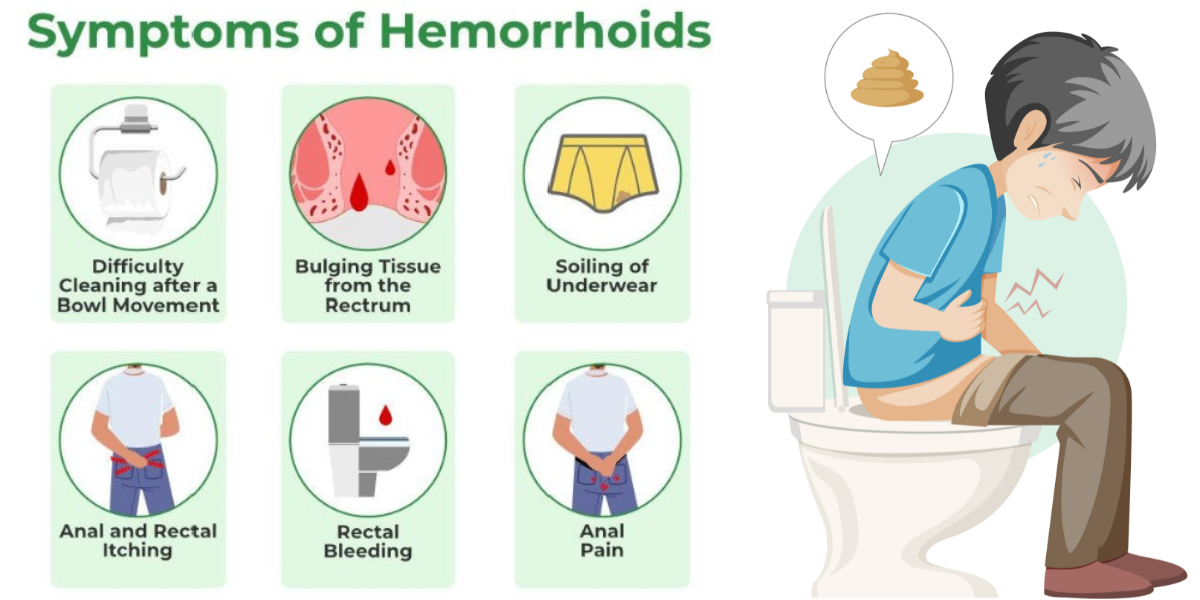
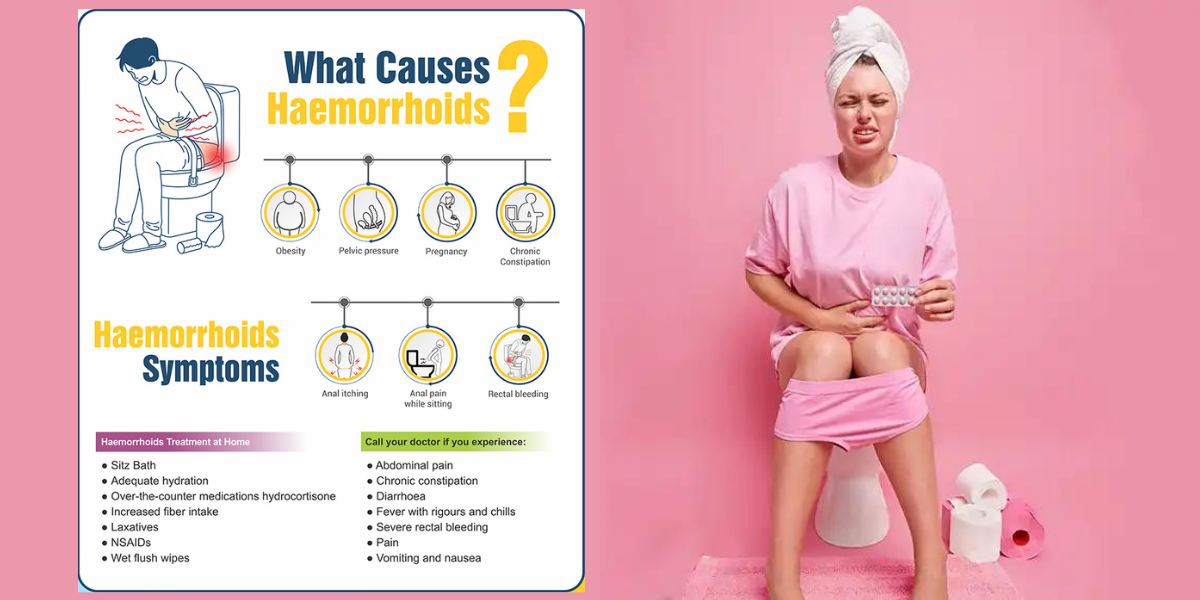
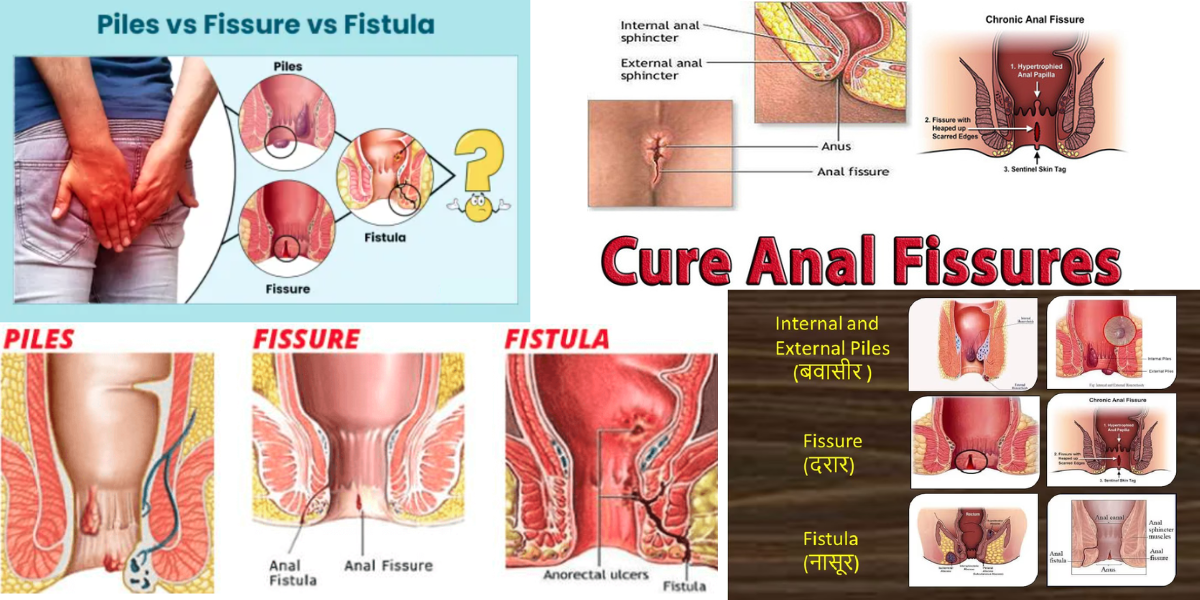
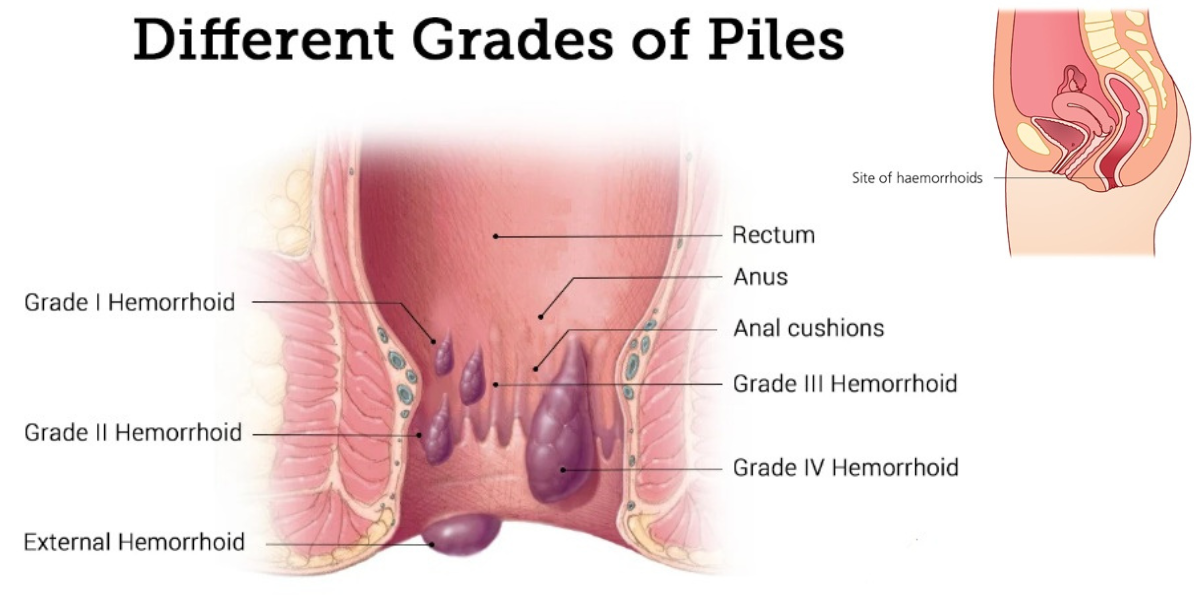
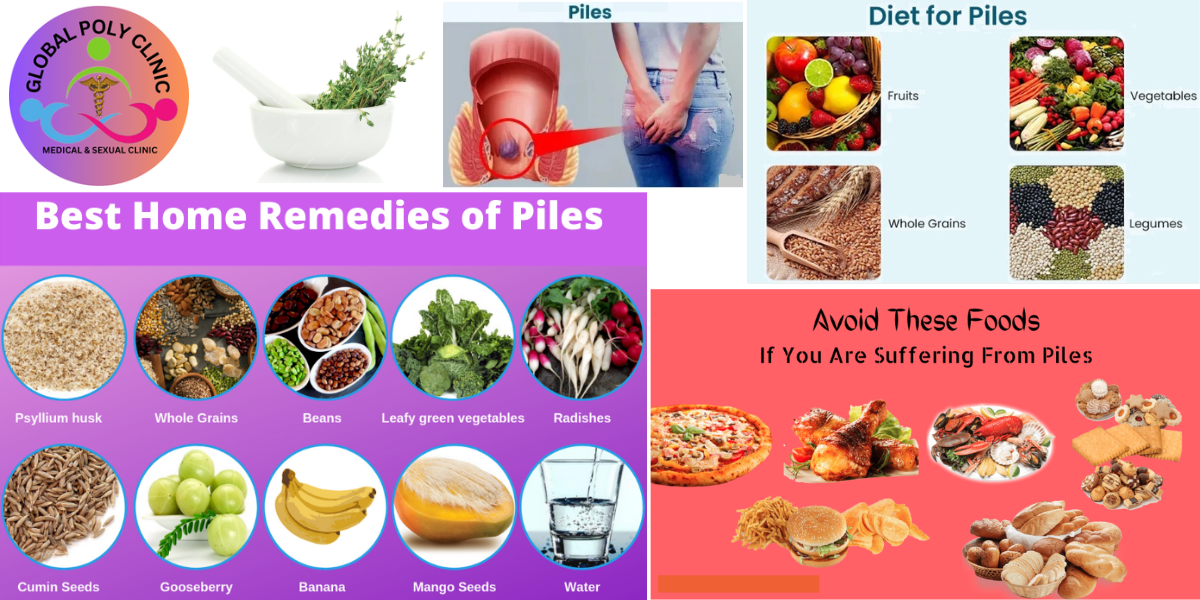
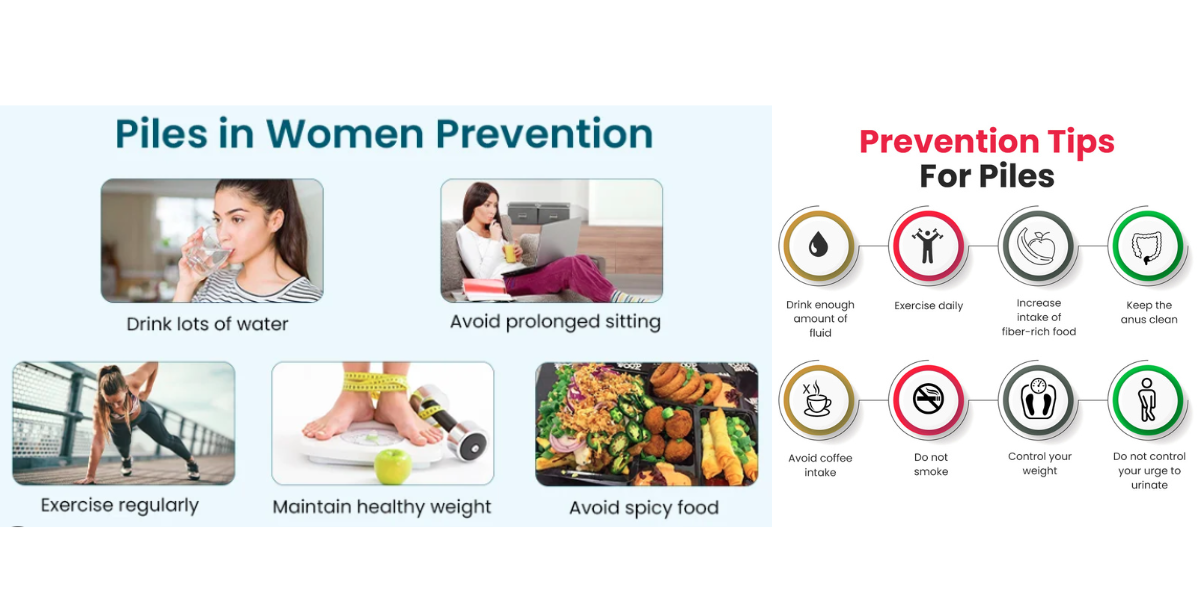
Piles (Haemorrhoids)
Hemorrhoids (piles) are swollen veins in the anus and lower rectum. Hemorrhoids are similar to varicose veins. Hemorrhoids can develop inside the rectum, called internal hemorrhoids. They also can develop under the skin around the anus, called external hemorrhoids.
Causes
Hemorrhoids are usually caused by straining during bowel movements, obesity or pregnancy.Piles develop when the veins in your anal canal become swollen, which may happen for a number of reasons as include:
you strain when you go to the toilet, for example if you have constipation or long-lasting diarrhoea.your anal canal weakens with age, which makes piles more likely.you have a persistent cough,you lift heavy objects.
Symptoms
Discomfort is a common symptom, especially during bowel movements or when sitting. Other symptoms include itching and bleeding. you may see blood (usually bright red) on toilet paper or drips in the toilet or on the surface of your poo,a lump in or around your anus,a slimy discharge of mucus from your anus, which may stain your underwear,a feeling of ‘fullness’ and discomfort in your anus, or a feeling that your bowels haven’t completely emptied after you’ve gone to the toilet.pain and discomfort after you go to the toilet.
Treatment/Managment
Treatment consists of supportive care like lifestyle modification to manage symptoms
A high-fiber diet can be effective, along with stool softeners.to use unani medications/modern therapy.At Global Poly Clinic, we offer a comprehensive approach combining modern medicine, Unani, and herbal treatments to address the underlying causes and improve overall health.
FAQs
Piles, also known as haemorrhoids, are swollen blood vessels in or around the rectum and anus, causing discomfort, pain, and sometimes bleeding.
Piles can be caused by straining during bowel movements, chronic constipation or diarrhea, obesity, pregnancy, and a low-fiber diet.
Common symptoms include pain or discomfort during bowel movements, itching or irritation around the anus, swelling or lumps near the anus, and rectal bleeding.
A doctor diagnoses piles through a physical examination, often involving a visual inspection of the anus and rectum, and may include a digital rectal exam or a proctoscopy.
Treatment options range from lifestyle changes, such as a high-fiber diet and proper hydration, to over-the-counter creams, medications, and in severe cases, surgical procedures.
Yes, piles can often be prevented by maintaining a healthy diet rich in fiber, staying hydrated, exercising regularly, and avoiding straining during bowel movements.
Yes, Global Poly Clinic provides comprehensive treatment for piles using a combination of modern, Unani, and herbal medicine to effectively manage and relieve symptoms.
